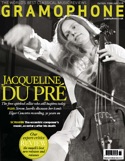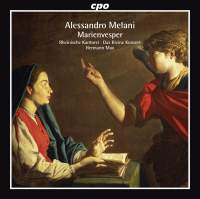Texte paru dans: / Appeared in: |
|
|
Outil de traduction (Très approximatif) |
|
|
Reviewer:
David
Vickers The Melani clan of Pistoia spawned numerous successful musicians during the 17th century. Alessandro Melani (16391703) was the youngest of seven brothers; his eldest brother Jacopo was a successful opera composer in Venice, Rome and Florence, and another brother, Atto, was a castrato with a talent for diplomatic service on behalf of Louis XIV and Pope Clement IX. Connections with the papacy helped Alessandro to be appointed maestro di cappella at S Maria Maggiore and then at S Luigi, the French national church in Rome. Hermann Max collects together various appropriate pieces for a hypothetical Marian Vespers; not every necessary text is covered by Melani, so Max interpolates two pieces by Giuseppe Ottavio Pitoni (1657-1743), whose long Roman career intersected with Corelli and both Scarlattis; the Palestrina-influenced simplicity of Pitoni’s hymn Ave maris stella provides an illuminating contrast with the intricate grandeur and theatricality of Melani’s Magnificat.
Ten experienced specialist singers are skilled at shaping choral counterpoint, declaiming homophonic chords, and florid solo singing, although CPO’s booklet does not specify exactly which of them performs the challenging virtuoso parts in some pieces. The soprano soloists are mildly beleaguered by uneven intonation in the motets ‘Vox turturis audita est’ and ‘Caeli gaudete’ (both taken from Melani’s 1673 collection Delectus sacrorum concentuum), whereas two interleaving sopranos sing rapturously in the ‘concerto’ ‘Salve, mater et regina’ taken from Concerti spirituali (1682). ‘Laudate pueri’ features a single soprano soloist with four-part chorus but sometimes the disposition and manipulation of forces is more intricate, such as multiple solo voices working both within and in juxtaposition to superb eight-part double-choir sections in ‘Nisi Dominus’. Melani’s music merits further investigations of this calibre. |
|
|
|
|
|
Cliquez l'un ou l'autre
bouton pour découvrir bien d'autres critiques de CD |
|




